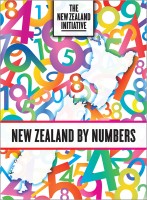Celebrating New Zealand’s successes
Last night, The New Zealand Initiative released a new book, New Zealand by Numbers. Its first aim is to counter the perception that New Zealand is a country riddled with problems. Instead, it celebrates positive developments within our nation that happen too slowly to make the headlines. Read more






